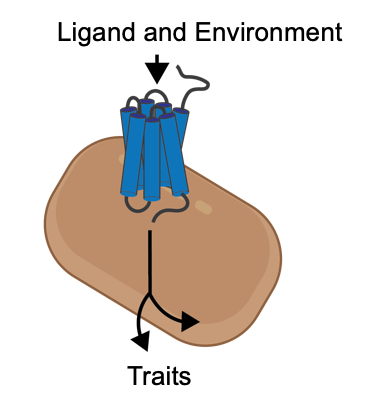
Our Research
We use microbial synthetic biology to address global challenges in human and planetary health and food security. Currently, we focus on the antifungal resistance crisis and on delivering tools for non-model microbes to make their capabilities available for a versatile bio-economy, specifically, new food production paradigms.
The yeast toxicome.
The rise of multidrug-resistant fungal pathogens has become a global threat to human health, and food security. [read more] Human fungal pathogens can cause severe systemic infection in individuals with a compromised immune system. Further, plant fungal pathogens account for substantial yearly crop loss, and fungal food spoilage is a major problem for the food industry. New approaches to developing antifungals are critically needed, especially those that can yield separate solutions to defeat human pathogens, agricultural pests, and food spoilers. It is challenging to develop new antifungals. As eukaryotic pathogens, fungi offer very few selective drug targets.
Ascomycete yeasts have evolved a large pool of small protein antifungals to compete in the environment. The genetic and functional diversity of these yeast-killer toxins suggests that they represent a huge arsenal of naturally optimized ways to kill fungi. A few killer toxins have been extensively studied, but the larger meta-genomic pool remains untapped.
We are building new strategies and technologies to access, understand, and engineer the hidden pool of yeast killer toxins toward their application as purified protein antifungals, as inspiration for functional mimicry, or for their use within engineered biocontrol agents and cell-based therapeutics. [read more]
Fungal GPCRs.
35% of drugs target human G-protein coupled receptors (GPCRs). This is because they are druggable from the extracellular, and they regulate many disease-related pathways, and drug screening assays are readily available.
Fungal genomes encode many fungi-specific classes of GPCRs but little is known about their ligands and the downstream pathways they control. [read more] A better molecular understanding of fungal GPCRs could lead to new antifungal treatments and also constitute an excellent resource for biosensing.[read more here, here, here, and here] We currently focus on the role of fungal mating GPCRs in triggering phenotypic changes in opportunistic pathogenic yeast and their use as biosensors. [read more]
Tools for (non-model) microbes.
Non-model microbes have native capabilities that are essential for implementing innovative bioprocesses but are too complex to engineer or transfer to model organisms. We develop tools for the engineering of non-model yeast and bacteria for both, basic understanding and engineering.[read more here and here] In a just-funded project, we will use hydrogen-oxidizing bacteria to develop a carbon dioxide and electricity-based production platform for foods and medicines.[read more]

